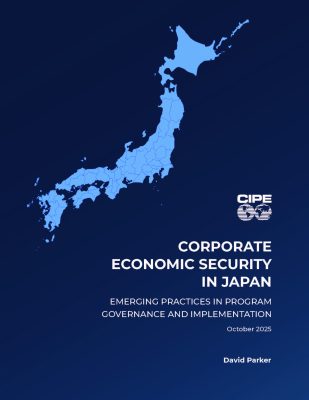Emerging Practices in Program Governance and Implementation
 In 1937, Japanese physicist Okochi Masatoshi observed that “future wars will not be wars of military might…they will be wars involving the entire nation’s scientific knowledge and industrial capacity.” Okochi could well have written that statement today. Spurred by resurgent great power competition and the increased weaponization of interdependence, policymakers and business leaders around the world are reassessing the strategic consequences of economic and technological interactions. Instead of maximizing economic efficiency through just-in-time supply chains, countries are now seeking to reorient systems of production to align with national economic security – and companies are assessing how they must adjust corporate strategy to ensure sustained commercial competitiveness.
In 1937, Japanese physicist Okochi Masatoshi observed that “future wars will not be wars of military might…they will be wars involving the entire nation’s scientific knowledge and industrial capacity.” Okochi could well have written that statement today. Spurred by resurgent great power competition and the increased weaponization of interdependence, policymakers and business leaders around the world are reassessing the strategic consequences of economic and technological interactions. Instead of maximizing economic efficiency through just-in-time supply chains, countries are now seeking to reorient systems of production to align with national economic security – and companies are assessing how they must adjust corporate strategy to ensure sustained commercial competitiveness.
Japan has recognized it faces an international environment “as severe and complex as it has ever been since the end of World War II” where “the scope of security has expanded to fields such as strengthening resilience of supply chains for critical materials.” In response, the Japanese government has developed a robust domestic economic security program and emerged as a global leader in international economic security cooperation. As the country’s non-market environment has grown more geopolitically fraught, Japanese companies are likewise leading the development of corporate economic security best practices, which seek to turn proactive geopolitical risk management into a long-term competitive advantage. Recognizing the importance of private sectors around the world in building sustainable corporate economic security practices, this working paper provides a high-level overview of Japan’s national economic security strategy and emerging private sector economic security practices drawn from leading Japanese companies.
Published Date: October 31, 2025
